个人资料
- 部门: 教育学部
- 毕业院校:
- 学位:
- 学历:
- 邮编:
- 联系电话:
- 传真:
- 电子邮箱: bwu@deit.ecnu.edu.cn
- 办公地址:
- 通讯地址:
教育经历
2001-2005 华东理工大学 电子信息工程 本科 2005-2008 华东理工大学 控制理论与控制工程 硕士 2008-2013 香港大学 教育技术 博士
工作经历
2013-2016 华东师范大学 教育信息技术学系 晨晖学者
2016- 2023 华东师范大学 教育信息技术学系 副教授 2024- 华东师范大学 教育信息技术学系 教授
2017-2018 美国威斯康星大学-麦迪逊分校 教育心理系 访问学者 2018- 华东师范大学 教育信息技术学系 副系主任(科研) 2020-2021 上海普陀区教育学院 副院长(挂职)
个人简介
吴忭,华东师范大学教授,博士生导师,香港大学博士,美国威斯康星大学麦迪逊分校访问学者,教育学部主任助理,教育信息技术学系副系主任。研究兴趣包括复杂问题解决学习、数字化学习环境设计、教师信息化专长发展、STEM教育和学习分析等。主持全国教科规划国家一般项目,国家社科基金重大项目子课题等国家级、省部级项目4项,并作为核心成员参与省部级以上项目6项,在British Journal of Educational Technology, Journal of Computer Assisted Learning,Educational Technology Research & Development等SSCI和CSSCI期刊发表论文40余篇,出版中英文专著、译著共4部。担任KM&EL和IJSmartLT执行主编,以及SSCI期刊JCAL、EJE编委,中国教育学会中小学信息技术教育专委会理事、中国高等教育学会学习科学分会理事、全球华人计算机教育应用学会大陆秘书处委员、GCCCE和GCCIL等多个国际会议子会议主席和议程委员、香港大学CITE中心顾问。
社会兼职
Executive Editor, Knowledge Management & E-Learning: An International Journal (KM&EL), 2022- Executive Editor, International Journal of Smart Technology and Learning (IJSTL), 2022- Editorial Board Member, Journal of Computer Assisted Learning (JCAL) , 2022- Editorial Board Member, European Journal of Education (EJE), 2023- Editorial Board Member, Research and Practice in Technology Enhanced Learning (RPTEL) 2021-2023 Consulting Editor, Educational Technology Research & Development (ETR&D) 《數位學習科技期刊》编委 2018-2020 Reviewer, Computers in Human Behavior (CHB) Reviewer, British Journal of Educational Technology (BJET) Reviewer, Journal of Computer Assisted Learning (JCAL) Ad hoc Reviewer, Australasian Journal of Educational Technology (AJET),Educational Technology & Society (ET&S),Journal of Educational Computing Research(JOECR),International Journal of Educational Technology in Higher Education (ETHE),Studies in Science Education, Internet & Higher Education
现代远程教育研究》外审专家 《远程教育杂志》外审专家 《中国远程教育》外审专家
研究方向
学习科学和学习分析
数字学习环境设计与评估 计算机支持的可视化学习 专长发展、复杂问题解决学习 计算思维、数据素养、AI素养 教师数字素养、信息化教师教育、信息化领导力 基于设计的研究 量化民族志研究
招生与培养
毕业学生:
2024 郭文欣(市优毕、清华大学攻读博士),陈思思(杭州文澜中学工作) 2023 常馨予(香港大学攻读博士),王雪敏(华南师大附中工作),刘婕妤 2022 于潇雪(研究生国家奖学金、上海交通大学工作),刘洋(上海现代职业技术学校工作) 2021 彭晓玲(研究生一等学业奖学金、ICALT最佳论文奖,深圳南海中学工作) 2020 王戈(研究生A类学业奖学金、华师出版智慧奖学金,黑龙江省纪委工作),励挺(宁波妙山小学工作) 2019 蒋方婷(华师出版智慧奖学金,成都东辰外国语学校工作)
开授课程
学习科学与技术(本科生) R语言教育应用(本科生) JAVA程序设计(本科生) 信息技术教育应用(本科生) 信息管理与信息系统(本科生) 学习科学研究(研究生) 教育数据挖掘与学习分析(研究生) 教育统计与SPSS(研究生)
科研项目
国家/省部级课题 主持“数据赋能的教师数字素养培养模式与可视化环境设计研究”(BCA230274),全国教科规划国家一般项目,2023-2026 主持“人工智能促进未来教育发展研究”(19ZDA364),国家社科基金重大项目子课题,2019-2024
参与“基于自然语言会话分析的问题解决能力测评技术及机制研究”(61977023),国家自然科学基金面上项目,2019-2024 参与“基于虚拟实习的STEM教师教育创新模式与应用研究”,教育部人文社会科学青年项目,2019-2022 参与“美国国家科学基金会教育科学资助体系演进及经费配置研究”,国家自然科学基金应急管理项目,2017-2020 主持“协作问题解决在线测评研究”(16YJC880085),教育部人文社科青年项目,2016.9 -2019.12 主持“非良构问题解决能力的图示化学习评价方法研究”(ECA140371),教科规划教育部青年专项课题,2015.1-2016.12 参与“基于自然输入方式的电子书包课堂教学行为模式”,上海市哲社教育学专项课题,2013-2016
参与“基于绿色指标的学习行为建模及其应用研究”,上海市教育科学重点课题,2013-2015
参与“以‘语义’图示实现可视化知识表征与建模的理论与实践研究”,全国教科规划国家一般项目,2013-2016
其它课题 主持“学习科学与技术(The Learning Sciences and Technology)”,华东师范大学全英文课程建设项目,2023-2024 主持“数据素养视角下师范生跨学科课程设计与实践能力培养”,华东师范大学卓越师范生培养提质计划项目,2023-2024
主持“讨论式学习中的智能会话分析测评技术研究”,华东师范大学人文社会科学青年预研究项目,2020-2022. 主持“屏幕文化下的学习环境设计及对脑智发展影响研究”,华东师范大学“幸福之花”基金先导项目,2019-2022. 主持“STEM教师教育虚拟实习”,华东师范大学虚拟仿真实验教学校内培育项目,2017.12-2019.12 主持“教师教学信念和信息化教学意愿影响21世纪教与学”,华东师范大学青年教师科研能力提升项目,2017.5-2019.5 主持“基于认知框架理论的计算思维评价研究:以JAVA程序设计与开发课程为例”,华东师范大学教学改革与研究项目,2017-2018
主持“基于眼动分析技术的多媒体学习效果研究”,华东师范大学教育学部高峰学科建设项目,2017.5-2018.4 主持“以学生为中心的学习环境设计”,教师教学能力提升MOOC课程建设项目,2016.10-2018.10 主持“临床思维能力的计算机图示化测评方法研究”(2016kx007),华东师范大学跨学科工作坊项目,2016.10-2018.9 主持 “学习科学理论与实践”,华东师范大学教育学部全英文课程建设项目,2016.11-2018.10 主持“协作问题解决的在线测评研究”,华东师范大学教育学部高峰学科建设项目,2016.5-2017.4 主持“iKnow机器人编程教材”,上海市杨浦区创新实践基地博士后研究项目,2015.4-2015.8 主持“智能眼镜应用设计”(10104-412321-15240),企事业单位委托研究项目,2015.1-2015.12 主持“新型智能工业观片灯设计”(10104-412321-14170),企事业单位委托研究项目,2014.11-2015.04 主持“形成性教学评价驱动的翻转课堂教学设计”(41300-515491-14100/163),华东师范大学社科处社会科学海外发文项目,2014.07-2017.06 主持“中小学微课开发与应用研究”(48618490),企事业单位委托研究项目,2014.04-2017.04 主持“幼儿学画iOS-APP开发”,企事业单位委托研究项目,2014.04-2014.12 参与“A pilotstudy on integrating learning facilities into computer aided diagnosis systems”(201310159036),香港大学基础研究种子基金,2014.04-2016.03 主持“开放大学MOOCs的模式与实践”(48904810),华东师范大学—上海远程教育集团教育技术学博士后科研工作站课题,2013.07-2014.07 主持“数字学习平台需求分析及信息化教学研究(79613012),华东师范大学信息化软科学课题,2013.09-2014.09 参与“Connecting problemsolving and knowledge construction through the design of a visualization-based learning environment”(201210159016),香港大学基础研究种子基金,2013.04-2015.03
学术成果
国际期刊论文
Wu, B., Hu, Y., Yu, X., Sun, M., Xie, H., Li, Z., & Wang, M. (2023). How do secondary students engage in complex problem-solving processes in a STEM project?. Knowledge Management & E-Learning, 15(4), 506. Wu, B., Chang, X., & Hu, Y.(2023) A meta-analysis of the effects of spherical video-based virtual reality on cognitive and non-cognitive learning outcomes.Interactive Learning Environments.(SSCI) Sun, Y., Yan, Z., & Wu, B.(2022) How differently designed guidance influences simulation‐based inquiry learning in science education: A systematic review.Jounal of Computer Assisted Learning, 38(4),960-976.(SSCI) Wu, B.,Peng, X., & Hu, Y. (2021) Fostering pre-service teachers’ STEM learning design expertise through online training: A design-based study,Educational Technology Research & Development, 69,3307-3329. https://doi.org/10.1007/s11423-021-10063-y (SSCI) Wu, B., Yu, X., & Gu, X. (2020) Effectiveness of immersive virtual reality using head-mounted displays on learning performance: A meta-analysis. British Journal of Educational Technology, 51(6), 1991-2005.https://doi.org/10.1111/bjet.13023 (SSCI) Wu, B., Hu, Y., & Wang, M.(2020) How do head-mounted displays and planning strategy influence problem-solving-based learning in introductory electrical circuit design? Educational Technology & Society, 23(3), 40-52.(SSCI) Wu, B., Hu, Y., & Wang, M.(2019) Scaffolding design thinking in online STEM preservice teacher training. British Journal of Educational Technology,50(5),2271-2287.https://doi.org/10.1111/bjet.12873 (SSCI, IF=2.729, 2017 Ranking: 23/238 in Education & Educational Research) Wu, B., Yu, X., & Hu, Y.(2019) How does principal e-leadership affect ICT transformation across different school stages in K-12 education: Perspectives from teachers in Shanghai. British Journal of Educational Technology, 50(3), 1210-1225. https://doi.org/10.1111/bjet.12766(SSCI, IF=2.729, 2017 Ranking: 23/238 in Education & Educational Research) Wu, B., Hu, Y., Ruis, A., & Wang, M.(2019) Assessing computational thinking in collaborative programming: A quantitative ethnography approach. Journal of Computer Assisted Learning, 35(3), 421-434.https://doi.org/10.1111/jcal.12348(SSCI, IF=1.859, 2017 Ranking: 66/238 in Education & Educational Research) Wang, M., Wu, B., Kirschner, P., & Spector, M.(2018) Using cognitive mapping to foster deep learning with complex problems in a computer-based environment. Computers in Human Behavior,87, 450-458. https://doi.org/10.1016/j.chb.2018.01.024(SSCI, 5-Year IF=4.417) Hu, Y., Wu, B.,& Gu, X. (2017) An eye tracking study of high and low performing students in solving interactive and analytical problems. Educational Technology & Society,20(4),300-311.https://www.jstor.org/stable/26229225(SSCI, 5-Year IF= 2.754) Hu, Y., Wu, B.,& Gu, X. (2017) Learning analysis of K-12 students’ online problem solving: A three-stage assessment approach. Interactive Learning Environments,25(2),262-279. http://dx.doi.org/10.1080/10494820.2016.1276080(SSCI, IF=1.604, 2017 Ranking: 90/238 in Education & Educational Research) Wu, B., Wang, M., Grotzer, T. A., Liu, J., & Johnson, J. M. (2016) Visualizing complex processes using a cognitive-mapping tool to support the learning of clinical reasoning. BMC Medical Education. http://dx.doi.org/10.1186/s12909-016-0734-x.(SCIE, SSCI, 5-Year IF=1.938) Wu, B., Hu, Y., Gu, X., & Lim, C. P. (2016) Professional development of new higher education teachers with information and communication technology (ICT) in Shanghai: A Kirkpatrick's evaluation approach. Journal of Educational Computing Research,54(4),531-562.http://dx.doi.org/10.1177/0735633115621922(SSCI, 5-Year IF=1.321, 2017 Ranking: 151/238 in Education & Educational Research) Wu, B., Wang, M., Johnson, J. M., & Grotzer, T. A. (2014) Improving clinical reasoning learning through computer-based cognitive representation. Medical Education Online.http://dx.doi.org/10.3402/meo.v19.25940(SSCI, IF=1.440, 2015 Ranking: 95/230 in Education & Education Research) Gu, X., Wu, B., & Xu, X. (2014) Design, development, and learning in e-Textbooks: What we learned and where we are going. Journal of Computers in Edcuation.http://dx.doi.org/10.1007/s40692-014-0023-9(Springer) Wu, B., Wang, M., Spector, M., & Yang, S.. (2013) Design of a dual-mapping learning approach for problem solving and knowledge constructionin ill-structured domains.Educational Technology & Society,16(4), 71-84. http://www.jstor.org/stable/jeductechsoci.16.4.71 (SSCI, 5-Year IF= 2.754) Wang, M., Wu, B., Chen, N. S., Kinshuk, & Spector, M. (2013) Connecting problem solving and knowledge construction processes in a visualization-based learning environment.Computers & Education,68,293-306.http://dx.doi.org/10.1016/j.compedu.2013.05.004(SSCI, SCIE, 5-Year IF=5.568) Wu, B. & Wang, M. (2012) Integrating problem solving and knowledge construction through dual mapping.Knowledge Management & E-Learning: An International Journal (KM&EL),4(3),248-257.https://doi.org/10.34105/j.kmel.2012.04.021(SCOPUS)
国际会议论文
Chang, X., & Wu, B. (2021) Effects of immersive spherical video-based virtual reality on cognition and affect outcomes of learning: A meta-analysis. Proceedings of the IEEE 21st International Conference on Advanced Learning Technologies. Qi, X., Hu, Y., & Wu, B. (2021) Modeling and visualization of group knowledge construction based on cohesion metrics in data inquiry learning. Proceedings of the IEEE 21st International Conference on Advanced Learning Technologies. Chang, X., Zhang, Q., & Wu, B. (2021) Students' self-regulated learning in synchronous distance education: A control-value perspective. SITE, April 24, 2021. Online. Peng, X., & Wu, B. (2020) Modeling STEM learning design competence through discourse analysis. Proceedings of the IEEE 20th International Conference on Advanced Learning Technologies. Nie, J., & Wu, B. (2020) Investigating the effect of immersive virtual reality and planning on the outcomes of simulation-based learning: A medai and method expeirment. Proceedings of the IEEE 20th International Conference on Advanced Learning Technologies. Zhang, J., & Wu, B. (2020) Self- and socially shared regulation of learning in data science education: A case study of 'Quantified Self' project. Proceddings of the 14th International Conference of the Learning Sciences. Nashville, Tennessee.
Ruan, J., Wu, B., & Wang, G. (2020) How to support STEM learning design: A learning design tool based on backward design model. Proceedings of American Educational Research Association Annual Meeting (AERA), April 2020, San Francisco, USA. Wu, B., & Ruan, J. (2019) Plan backward to move forward: Exploring preservice teachers’ competence trajectory through backward design of STEM curriculum. Proceedings of 1st International Conference on Quantitative Ethnography (ICQE), Oct 2019, Madison, USA. Wu, B., & Peng, X. (2019) Directive or facilitative tutor? The effect of tutoring styles on STEM learning design discussion.Proceedings of 1st International Conference on Quantitative Ethnography (ICQE), Oct 2019, Madison, USA. Wang, G., Wu, B., & Hu, Y. (2019) How to measure the collaborative problem-solving competency based on conversational agent. Proceedings of 27st International Conference on Computers in Education(ICCE), Dec 2019, Kenting, Taiwan. Peng, X. & Wu, B. (2019) Research on the development of a personalized learning assessment model: Building connections between knowledge components and cognitive levels. Proceedings of 27st International Conference on Computers in Education(ICCE), Dec 2019, Kenting, Taiwan. Hu, Y., Yu, X., & Wu, B. (2019) University teachers’ m-learning approach adoption: Integrating m-technology and m-pedagogy factors into a behavioral intention model. Proceedings of 2019 AECT International Convention, Oct 2019, Las Vegas, USA. Ruan, J., Wu, B., & Gu, X. (2019) Design of an online STEM teacher training environment: An authentic learning perspective. Proceedings of Society for Information Technology & Teacher Education 2019, Las Vegas, USA. Wu, B. & Sung, H.(2019) Exploring the epistemic development trajectories in jigsaw-based collaborative problemsolving. AERA 2019, Toronto, Canada. Du, F., Zhao, Y., Wu, B., & Gu, X. (2018) A Review of Presence Research in Foreign Online Learning. GCCCE 2018, Guangzhou, China. Wang, G., Sheng, H, & Wu, B. (2018) Case Study of Learning Evaluation Based on Epistemic Network Analysis. GCCCE 2018, Guangzhou, China. Jiang, F. & Wu, B. (2018) Innovative Design Pattern of Internet +STEM Education: Inspiration from Virtual Internship Program. GCCCE 2018, Guangzhou, China. Hu, Y., Zhu, J., Wu, B. (2017) Scaffolding spatial thinking with visualization and embodiment: A 3D multimedia approach. International Conference on Advanced Learning Technology (ICALT). Wu, B. (2017) Effective scaffolding strategies in support of learning computational thinking in a primary robotics-programming course. AERA, 2017,San Antonio, USA. Hu, Y., Wu, B., & Gu, X. (2017) Why Shanghai students performed not so well in PISA problem-solving test: A control-valueperspective. AERA, 2017, San Antonio,USA. Wu, B. (2016) Robotics programming in support of computational thinking: Scaffolding from teacher,peer, and robotics agents. Proceedings of the 12th International Conference of the Learning Sciences, International Conference of the Learning Sciences (ICLS), Singapore. Wang, M., Wu, B., & Kirschner,P. (2016). Extended concept mapping to support problem solving and learning in a computer-based learning environment, Proceedings of the Workshopon Computer-Based Learning Environments for Deep Learning in Inquiry and Problem-Solving Contexts, International Conference of the Learning Sciences (ICLS), Singapore. Hu, Y., Feng, Y., & Wu, B. Do they learn well in class: A new lens to explore learning motivation and cognitivecompetence. The AECT-LKAOE 2015 SummerInternational Research Symposium, Shanghai, China, 2015. Luo, J., Sun, M., Wu, B., & Gu, X. Exploring the effectiveness of a flipped classroom-based on control-value theory: A case study.Proceedings of the 22nd International Conference on Computers in Education. Japan: Asia-Pacific Society for Computers in Education, 2014, Nara,Japan. Wu, B., Cai, H., & Gu, X. Visualization tool-supported PBL environment in clinical expertise development.AERA 2014 Annual Meeting, April 2014, Philadelphia, USA. Wang, J., Wu, B., & Gu, X. Training of pre-service teachers in higher education institutions in Shanghai: Research on TPACK and technology acceptance.Proceedings of 18th Global Chinese Conference on Computers in Education(GCCCE), May 2014, Shanghai, China. Cai, H., Wu, B., & Gu, X. Collaborative problem-solving learning supported by semantic diagram tool: From the view of technology orchestrated into learning activity. Proceedings of 21st International Conference on Computers in Education(ICCE), Nov 2013, Denpasar Bali, Indonesia. Wu, B., & Wang, M. (2012) Integrating problem solving and knowledge construction through dual mapping.Proceedings of 16th Global Chinese Conference on Computers in Education(GCCCE),May 2012, Kenting, Taiwan. Wu, B., & Wang, M. (2011) Dual mapping in support of problem solving and knowledge construction.Proceedings of 11th IEEE International Conference on Advanced Learning Technologies(ICALT), July 2011, Athens, Georgia, USA Wu, B., Wang, M., & Yun, H. (2009) An agent-based system for healthcare process management.Proceedings of International Conference on Enterprise Information Systems (ICEIS),Milan, May 2009 Wu, B., Wang, M., Yun, H., & Jiang, H. (2009) An agent-based cognitive approach for healthcare process management.Proceedingsof IEEE International Conference on Cognitive Informatics (ICCI),HongKong, June 2009
中文期刊论文 吴忭,李凤鸣,胡艺龄.生成式人工智能赋能本科生科研能力培养——ChatGPT支持的CUREs教学模式[J].现代远程教育研究. (in press) 吴忭,陈思思.智慧教育环境中促进教与学的可视化学习分析[J].广西师范大学学报(哲学社会科学版),2024,60(01):92-103.(C扩) 胡艺龄,张启迪,吴忭.多元评价视域下STEM课堂教学特征与互动模式分析[J].中国远程教育,2022(09):44-52.(CSSCI) 郭文欣,吴忭.人工智能视域下基于设计的实施研究方法:框架及案例分析[J].中国教育信息化,2022,28(06):54-63. 胡艺龄,张启迪,孙珂,吴忭.中小学教师数据素养培养模式及应用研究[J].中国远程教育,2022(3),51-60.(CSSCI)
吴忭,彭晓玲.量化民族志:一种融合定性与定量的教育研究方法[J]. 现代远程教育研究,2021,(2),63-72.(CSSCI) 胡艺龄,聂静,张天琦,吴忭.具身认知视域下VR技术赋能实验教学的效果探究[J].现代远程教育研究,2021,33(5),94-102.(CSSCI) 胡艺龄,常馨予,吴忭.沉浸式虚拟现实对实验技能迁移的影响:学习风格的调节作用[J].远程教育杂志,2021,(2),63-71.(CSSCI)
胡艺龄,彭晓玲,吴忭.基于虚拟实习的STEM教师教学设计能力培养模式研究[J].中国远程教育,2021,(8),31-39. 彭晓玲,吴忭.数据驱动的精准教学何以可能?培养教师的数据智慧[J].华东师范大学学报(教育科学版),2021,39(8),45-56.(CSSCI) 吴忭,David Shaffer.数据赋能的理解学习[J].开放教育研究,2020,26(2),46-48.(CSSCI) 吴忭,王戈,胡艺龄,祝嘉钰.基于会话代理的协作问题解决能力测评工具设计与效果验证[J].远程教育杂志,2019,(6),91-99.(CSSCI) 吴忭,杜丰丰.教师引导风格对非良构问题领域的PBL学习影响研究——基于认知网络分析方法[J].中国远程教育,2019,(9),65-71,93.(CSSCI) 吴忭,彭晓玲,胡艺龄.教育研究的去芜存菁之路:从多模态叙事到证据公平——美国AERA2019年会述评[J].远程教育杂志,2019,37(4),13-23.(CSSCI) 吴忭,王戈.协作编程中的计算思维发展轨迹研究——基于量化民族志的分析方法[J]. 现代远程教育研究, 2019, 158(2), 76-84,94.(CSSCI) 吴忭,胡艺龄,赵玥颖.如何使用数据:回归基于理解的深度学习和测评[J].开放教育研究,2019,25(1),4-12.(CSSCI) 吴忭,王戈,盛海曦.认知网络分析法:STEM教育中的学习评价新思路[J]. 远程教育杂志,2018,(6),3-10.(CSSCI) 吴忭,胡梦华,胡艺龄.教师信息化专业发展研究主题与热点评述——基于2000-2017年国际期刊论文的共词分析[J].开放教育研究,2018,24(1),82-90.(CSSCI) 吴忭,顾小清. 教育大数据的深度认知、实践案例与趋势展望——2017年“教育大数据应用技术”国际学术研讨会评述[J].现代远程教育研究, 2017, 147(3), 11-17. (CSSCI) 吴忭,胡艺龄,顾小清. 高校新教师信息技术与课程整合能力实证研究——基于上海市属高校教师职前培训项目[J]. 现代远程教育研究, 2016, 141(3), 77-83. (CSSCI) 吴忭,蔡慧英. 实境学习:让学习在学习者的手中和脑中同时发生[J]. 现代远程教育研究, 2015, 137(5), 12-18. (CSSCI) 肖君,胡艺龄,陈静雅,吴忭. 开放教育下的MOOCs运营机制研究[J].中国电化教育, 2015, (3), 10-14,38. (CSSCI) 吴忭,顾小清. 图示化学习工具促进知能发展的学习行为模式分析研究[J].开放教育研究, 2014, 20(5), 59-66.(CSSCI) 胡艺龄,陈婧雅,顾小清,吴忭. MOOCs在教育均衡中的挑战及应对策略[J].中国电化教育,2014,330,40-45. (CSSCI) 吴忭,顾小清. 通向有效的教学方法和教学设计的途径--访国际知名教育心理学教授保尔·科士纳[J].开放教育研究, 2013, 19(5), 4-11. (CSSCI) 刘军,吴忭,王敏红,金为民,王春刚. 图示PBL系统在临床诊断知能培训中的效果研究[J].中华医学教育探索杂志, 2013,13(2):183-187.
中文专著 1. 吴忭.图示支持的非良构问题解决学习环境设计与测评[M].华东师范大学出版社,2016.
2. 吴忭.学习分析[M].科学教育出版社.2021
3. 吴忭等.Achieving Greater Educational Impact through Data Intelligence: Practice, Challenge and Expectations of Education[M]. World Scientific.2022
4. 吴忭.量化民族志[M].重庆大学出版社.2022(译著)
软件著作权 1. 临床PBL在线图示化学习平台,2016.
学术报告与讲座 “一带一路”国家教育管理者研修班讲座,题目:大数据挖掘与分析在教育中的应用,2023.9.14(in English) 发展中国家农村教师综合措施研修班,题目:信息技术教育应用,2023.8.30(in English) 山东东营实验中学讲座,题目:教育数字化转型中的教师专业发展:联结学习设计与学习分析,2023.8.28 北京大学暑期学校,题目:一种质性大数据的可视化分析方法:认知网络分析,2023.7.12 人工智能促进未来教育发展主题研讨会,题目:面向协作问题解决的可视化学习分析工具设计,2023.6.11
重庆大学实证社会科学方法培训班讲座:题目:量化民族志,2022.6.24-6.26 上海普陀区教育学院信息团队领衔人讲座,题目:教育数字化转型中的教师专业发展:联结学习设计与学习分析,2022.10.27 全国教育实证研究论坛网络分析子论坛,题目:Epistemic network modeling of pre-service teacher's STEM teaching competence through collaborative learning design. 2021.10.30 “一带一路”国家中小学信息化教育研究班,报告题目:信息化领导力. 2021.9.(in English) 量化民族志网络研讨会,报告题目:Epistemic network modeling of pre-service teacher’s STEM teaching competence through collaborative learning design. 2020.11 (in English) 美国教育研究协会年会(AERA2019,多伦多),报告题目:Exploring the epistemic development trajectories in jigsaw-based collaborative problem solving,2019.4 (in English) 华东师范大学教育信息技术学系,报告题目:拼图式协作问题解决中的认知发展轨迹研究,2019.4 云南省教师发展中心主任、教师进修学校校长管理能力提升研修班(上海市师资培训中心),报告题目:教育信息化2.0时代的数字化领导力和教师专业发展,2019.5 华东师范大学教育心理系,报告题目:基于认知网络分析的协作问题解决会话建模,2019.5 中国教育现代化2035暨未来中小学学习方式的变革研讨会(教育部学校规划建设发展中心,宁波),报告题目:人工智能时代的未来学校画像,2019.5 国际学习科学社区-北京师范大学论坛(ISLS-BNU,北京),报告题目:Scaffolding in online STEM learning design: An epistemic network analysis,2019.6 澳门城市大学(澳门),报告题目:How to design a mini-video lecture. 2019.6 上海中医药大学,报告题目:医学PBL——复杂问题解决能力的培养与评估,2019.7 华东师范大学数据科学与工程学院暑期学校,报告题目:大数据时代的质性数据量化建模方法——量化民族志,2019.7
软件成果 1. 小组合作学习可视化学习分析工具(吴忭,戚晓颖)
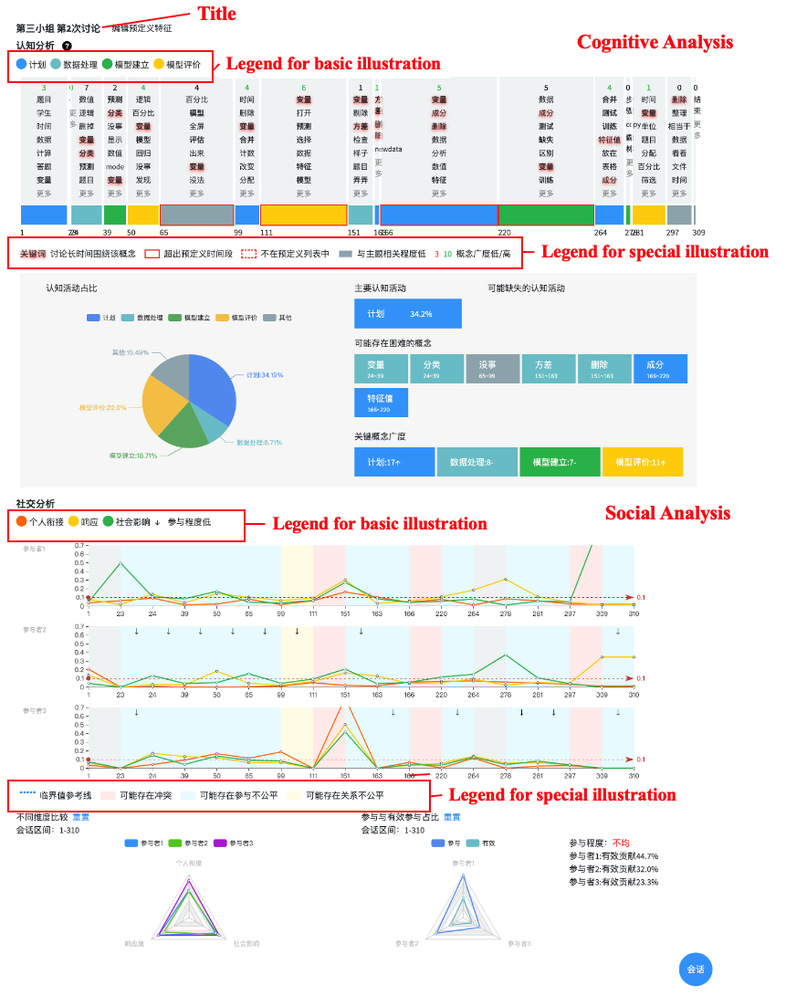
2. 工程设计仿真学习工具(彭迪,吴忭,孙妍妍)
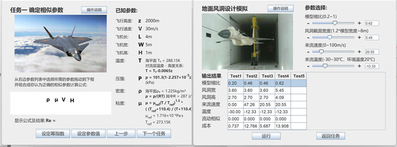
3. STEM教师虚拟实习平台(吴忭,李典康,张润权,凌志威)
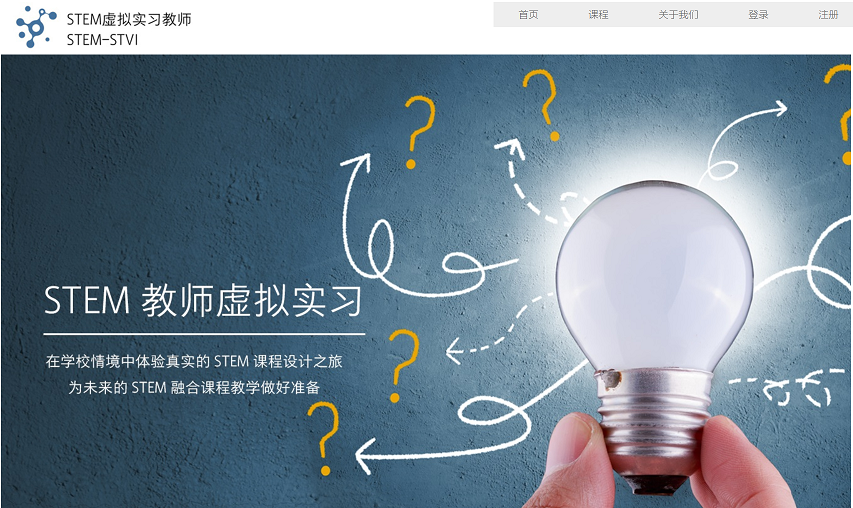
4. 临床PBL在线图示化培训系统(吴忭)
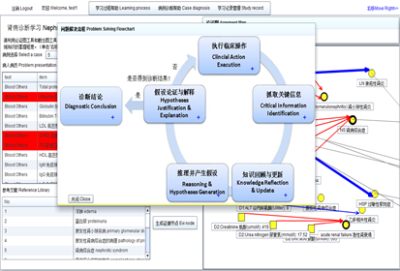
5. 交互式问题解决测评系统(胡艺龄,吴忭)
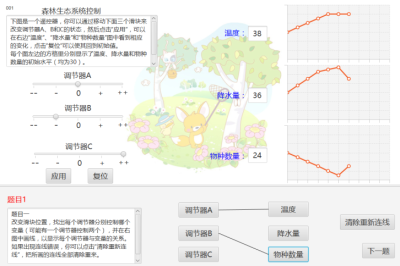
6. 空间思维眼动分析系统(吴忭,王诗宇,胡艺龄,姜宇轩)
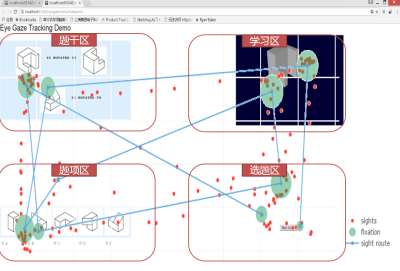
7. 协作问题解决测评系统(吴忭,邱婷婷)
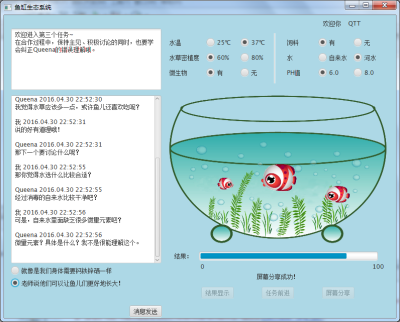
8. 青光眼诊疗决策支持系统(吴忭,王敏红)
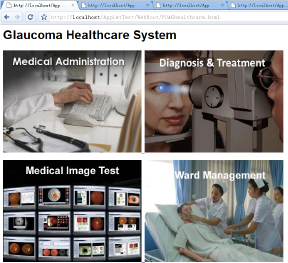
9. “宝宝学画画”iPad App(吴忭,严佳,邱婷婷)
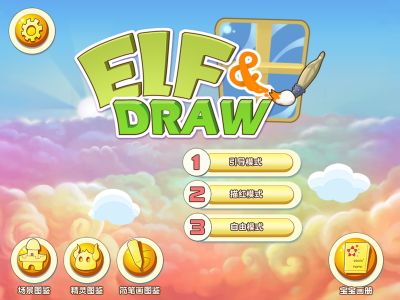
|









